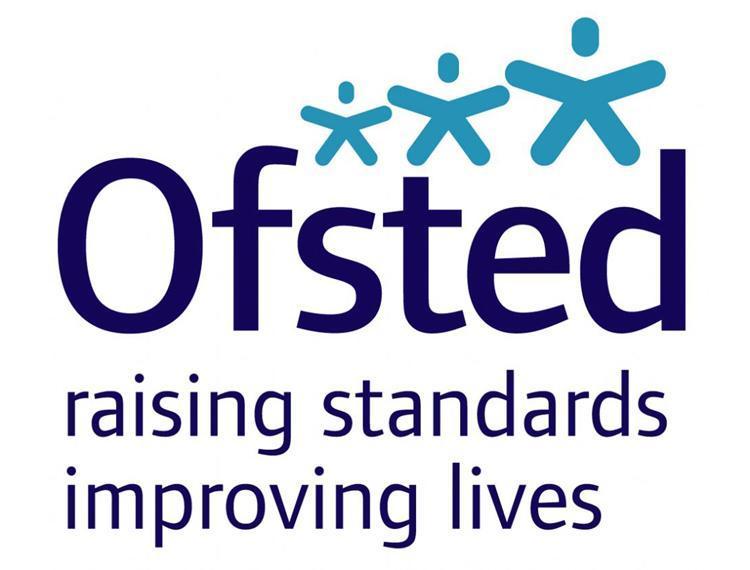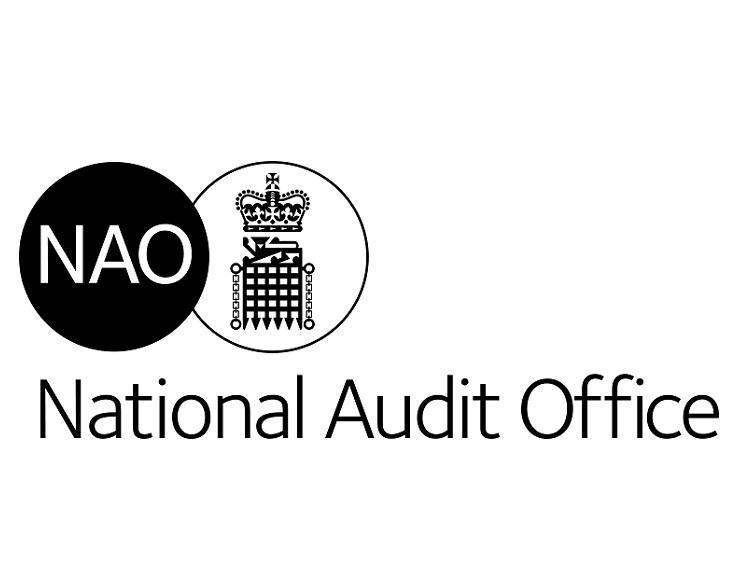What Happened? learndirect board Q&A on recent events

Q1 Why did standards dip within learndirect leading to the poor Ofsted report?
A1 It is the board’s belief that much of the press coverage fails to understand the complexities of the situation and as a result the company’s position has been misreported. This is in a climate where national government commitment to training and apprenticeships has been dramatically reduced year after year, forcing providers to radically reduce costs and constantly restructure whilst trying to maintain quality levels.
The board also wish it to be known, outside of government circles, that learndirect Limited was informed in 2014 that its funding for the following year, 2014/15, for adult learning would be cut by circa £20m. The company was only given a few weeks to reduce costs in preparation for the reduced funding.
This pattern has continued with adult learning funding reduced to £60m in 2016/17, a reduction of over 50% of our funding income since 2012. This has resulted in a continual series of cost cutting and restructuring of the business to ensure survival.
Although these cuts applied across the sector, the scale of learndirect Limited and the level of fixed cost base in the training centre network made it extraordinarily difficult to manage the cost reductions necessary to ensure the company’s survival. Our shareholders have injected £37m over this period in order support the business through several restructurings.
This was exacerbated by the lack of notice given to providers of government policy changes and funding cuts. This has become the dominant driver of the business since 2014 – annual funding cuts followed by annual radical cost reduction programmes.
Over this period, the board have continually been looking for ways to diversify revenues away from the central ESFA funding in order to minimise the risk of funding cuts. However there have equally been erratic and inconsistent policies in the wider education sector in which learndirect Limited operate. In particular, in the government-funded SME Apprenticeships and the Government high-risk e-assessment markets. Many private sector providers have been driven out of business due to this volatility in government decision making.
A simple picture of an across-the-board decline in quality is too aggregated to be meaningful.
In adult learning, success rates initially increased from 79% in 2011 to 91% in 2014 and then dropped to 81% in 2016 while recovering to 83% in 2017. This compares favourably to the industry average which shows that learndirect Limited is a good provider in this space. It is worth noting that in the two years preceding the Grade 2 Ofsted rating, success rates for learndirect Limited were 79% and 81% and in the two years prior to the Grade 4 recently given to the group were 85% and 81%. Our success rates now are higher than they were under a better Ofsted rating.
Apprenticeships success rates have shown a decline from 80% at the time of acquisition in 2011 to 58% in 2016. However, during this time several factors have impacted this rate.
Firstly, the introduction of a minimum length of 12 months for an apprenticeship was implemented in August 2012 while at that time learndirect Limited’s average apprenticeship was circa 9 months. This change was introduced with no accompanying increase in funding.
Secondly the ESFA changed the basis of calculation of success rates. Under the original calculation the company saw success rates drop from 69% to 65% over the 2014-2015 period, this was very concerning but not catastrophic. However, the SFA introduced a new method of calculation in 2016 which was applied retrospectively. Under the new methodology, this resulted in success rates dropping from 68% to 60% over the 2014-2015 period.
Finally, providers were asked to continually improve quality at a time of unprecedented funding cuts for providers. Clearly these two factors being in conflict with each other.
This meant that the significant decline in SME Apprenticeships only really became apparent in 2016 and at this point the company took immediate action to remedy the situation. This contrasts with the picture presented by the media. Processes were improved and management was changed to help drive better company performance. Furthermore, this improvement is recognised in the Ofsted report – another point which the media neglects to mention.
Q2 The Ofsted report stated: “The new senior management team has begun to tackle the main weakness and early signs of improvement indicates their actions are beginning to have an impact.” What are these weaknesses and what improvements have been made?
A2 The new management team had already identified the weaknesses in our SME Apprenticeship business and were in the process of resolving those, as demonstrated to the inspection team and later reflected in the Ofsted report where leadership and management were given a grade 3. The key weaknesses and the actions taken to address them were as follows:
- Recording and monitoring of planned off the job learning. In our current quality improvement plan which was implemented after the inspection in March, this was identified and there is now a process put in place to regularly monitor off-the-job learning.
- Weakness in leaders and managers monitoring of timely progress. An Apprenticeship Progress Review (APR) process was implemented which enhances the previous procedure used to monitor progress. Oversight of the APR is through weekly monitoring by the senior executive team. learndirect Limited has also established a quality sub- committee of the main board that is chaired by the Chief
- Late addressing of the change in QAR methodology which lead to a negative impact on QAR due to breaks in learning. learndirect Limited has established a better relationship with the ESFA to understand policy changes and contract requirements. The CEO has led this activity and now has frequent meetings with the senior civil servants at the ESFA and takes responsibility within the organisation for feeding funding and policy changes into the
- Inconsistent performance management. The new APR process provides appropriate, frequent and accurate data to manage staff performance to strengthen
Further evidence includes:
The Ofsted report recognised that success rates are on upward trajectory.
“Since the appointment of a new Chief Executive Officer and the restructure of the business into two divisions, with their own recently-established, separate senior management teams, extensive steps have been taken to stem the decline. Early signs of improvement indicate that these actions are beginning to have an impact”.
Learndirect Limited have recruited industry experts in data management and analytics to create appropriate systems to give better insight to all levels of staff (including leaders, managers and the Board) as to the performance of learners & Apprentices and in support of a robust performance management regime.
This builds on what had been recognised by the inspectors and noted in the report.
“Directors and senior managers now have a better understanding of the strengths and weaknesses of each area of provision. They have established clear reporting structures to hold managers to account for their performance, and they scrutinise reports on performance very regularly to monitor the impact of managers’ actions”.
Q3 It has been reported in the press that Amanda Spielman, Chief Inspector of Ofsted, has said “that something like a third of the Apprentices at learndirect were getting no training at all.” Do you agree?
A3 We do not agree with this statement.
Firstly, this statement is factually incorrect. The report says that a third of learners did not receive their entitlement to off the job training. This does not mean that they received no training; just that they did not receive their full entitlement to off the job training. This error has been further exacerbated due to the fact that Ofsted chose to extrapolate data to form a judgement rather than undertaking a review of a reasonable sample size. We are very surprised that an ‘expert regulator’ would get such a key fact so wrong and mislead the public. It has caused learndirect Limited significant harm.
Through the misreporting of this statement, it has been portrayed that learndirect Limited Apprentices received ‘no training’. This may lead to potential embarrassment for those people taking this reporting at face value who have, as a result called for National Audit Office (NAO) intervention in the case of learndirect Limited. Despite this, we have invited NAO to visit learndirect Limited at their convenience.
The error stems from the opinion of a single inspector, who should never have been part of the inspection due to a significant conflict of interest which has not been declared at any point by Ofsted. The inspector had a prior business relationship with learndirect Limited.
The inspector claimed that:
- Apprentices were not getting new skills
- That Apprentices were not getting any teaching and learning
- Apprentices were not getting their entitlement to off the job training learndirect Limited showed in evidence that was presented to the court that:
- The majority of Apprentices supported by learndirect Limited were undertaking roles for which there is no opportunity, prior to employment, to gain the skills required in the job. For example, it is not possible to learn to be a dental nurse until someone has the role of dental nurse and is learning both in and away from the workplace. It is also worth noting that learndirect Limited presented evidence during and after the inspection from employers who praised the new skills achieved by their employees. However, this was not considered by the inspectorate who believed that desk based evidence held more weight than the views of
- Rather than speaking to Apprentices to gain their understanding of their teaching and learning experience, the inspectorate instead relied on evidence from systems that we had previously informed them would not give them the required detailed evidence to come to their
- Apprentices require both on and off the job training. The inspectorate sampled a very small group of Apprentices and extrapolated that figure to come up with the assertion that has been wildly misrepresented in reporting. Employers understand the need to give their employees time off the job to complete their teaching and learning. Given that this training is not necessarily ‘away from the workplace’ in a separate teaching location, a number of Apprentices do not recognise the difference between on and off the job training. This was apparent when we questioned the evidence coming back from some of the brief telephone interviews that Ofsted were holding with Apprentices where it was clear the Apprentices had misunderstood what was being asked of them. This tiny sample of misinterpreted interviews was again extrapolated to represent a picture of a large number of Apprentices.
Q4 FE Week stated “Ofsted claimed learndirect actually deliberately tried to scupper its on-site inspections, such that there was “a strategy by the provider to limit our evidence base”. True or false?
A4 We refute this. Ofsted claimed that we did not provide full access to names and telephone numbers for all of our learners. One inspector claimed that we purposely took the system down one evening to prevent him from accessing it. In the inspector’s witness statement, he said that one night during the inspection he could not obtain access. However, he also acknowledged that he could access the system the next morning and that it was likely to have been a system error. learndirect Limited complied with all data requests from Ofsted during the inspection and within the inspection period despite the inspectors’ unprofessionalism as highlighted by us in the Judicial Review.
Q5 The press have insinuated that Learndirect was seen as “too big to fail” and also received preferential treatment in receiving an ESFA contract to wind down our AEB / Adult Learning business to July 2018.
A5 We are incensed by these accusations for a number of reasons:
- Firstly, Learndirect Limited will not benefit from the £45m of funding as this level of funding does not even cover our cost base in that part of our business. The decision to fund Learndirect Limited to July 2018 was taken as it is the best outcome for learners.
- The reason this decision is best for learners is that our Adult Learning business has good success rates and also did not receive an Ofsted Grade 4; instead it received a Grade 3. Therefore, the board and stakeholders of learndirect Limited feel a very unjust decision has been taken to force a perfectly good operator in the Adult Learning sector to close
- We understand that learndirect Limited did not receive a higher proportional funding allocation from ESFA in 2017/18 than other providers who chose to exit the sector.
- It is worth noting that a public sector organization that is awarded an Ofsted Grade 4 is allowed to continue trading and make improvements (a number of FE colleges have been permitted to do this) while any private sector provider given a Grade 4 is closed down. This is deeply unfair and inhibits competition in the sector.
- For all of the above reasons, as well as the fact that we do not agree that the Ofsted inspection was properly carried out and that a Grade 4 was justified, learndirect Limited feel that we have been unfairly
Q6 The Financial Times reported in August that 84 per cent of the cash generated by the business is being spent on “interest, dividends, management and debt-related fees.” This suggests that only 16% of the income was spent on training – is this true?
A6 This is completely untrue. The vast majority of income received is of course used to fund the costs of delivering training. FE Week and the FT were trying to sensationalise learndirect’s position and they didn’t understand the accounting in relation to this. They were talking about profit after all costs were paid. The majority of costs are spent on learning but FE Week were referring to the surplus left after these operating costs are paid.
Accounts for learndirect Limited’s two holding companies, Pimco 2909 and Pimco (Holdings), do show that between 2012 and 2015, 84% of the net cash generated from operating activities (which after all operating costs amounts to £38.0m) was spent on interest (£15.6m), dividends (£6.1m), management fees (£0.4m) and fees in relation to various matters including to raise debt (£9.8m, comprising arrangement fees of £6.6m and advisory fees of £3.2m). This is entirely normal for a private business operating in this manner.
Furthermore, at the time the dividend was paid learndirect Limited was highly profitable as costs not relating to learning had been radically reduced post privatisation compared to when the business was in government ownership. No dividends or capital repayments have been made to shareholders since December 2013. Since that time some £37m has been re- injected into learndirect Limited by shareholders in an effort to stabilise the business under a backdrop of very significant funding cuts and changes in polices levied on the business with little notice by government bodies (our funding providers).
It should be highlighted that the net cash generated from operating activities shown in the accounts is after the costs of running the business have been accounted for. The largest proportion of these costs is directly related to providing training to our learners.
Putting this in context, over this period learndirect Limited generated total operating profit of £41m from revenues of £609m. It should be noted that, compared with its competitors, learndirect Limited generated a lower proportional profit as it invested heavily in learning infrastructure and training materials during this time.
The profit levels are not unreasonable at 7% of revenues, lower than many of its competitors and comparable with many FTSE 350 companies.
 Q7 Skills Minister Anne Milton was criticised by MPs (Labour MP Wes Streeting for Ilford North and Shadow Minister for Skills Gordon Marsden) for misleading the House of Commons with factual inaccuracy as to what the current state of learndirect Apprenticeships’ contract is.
Q7 Skills Minister Anne Milton was criticised by MPs (Labour MP Wes Streeting for Ilford North and Shadow Minister for Skills Gordon Marsden) for misleading the House of Commons with factual inaccuracy as to what the current state of learndirect Apprenticeships’ contract is.
FE Week stated that contrary to Ms Milton’s claims, learndirect itself chose to switch new recruitment to learndirect Apprenticeships Ltd prior to the Ofsted inspection in March, and has already taken on over 3,000 Apprentices since May. How do you view Anne Milton’s statement?
A7 There have been no new Apprenticeships starts in learndirect Limited since 1 May 2017. learndirect Apprenticeships was set up in 2016 in order to prepare for the new Levy Apprenticeship programme being launched by the government on 1 May 2017. This business has a separate registration and focuses on larger corporates who qualify for the Levy Scheme. This is a very different business and delivery model to the SME Apprenticeships which we operated in learndirect Limited and that we chose to cease taking on new learners from April 2017.
Q8 Skills Minister Anne Milton gave an undertaking to recoup any public money for training not delivered. “We will claw back from learndirect any bit of their contract they have failed to fulfil.” Do you know of any training not being delivered by learndirect?
A8 The ESFA completed their latest audit in July 2017 to check learndirect Limited’s entitlement to the funding received in 2016/17. This is very important given that the recent report in FE Week suggests no audit has been done. The error rate of 1.07% was well within their 5% threshold and compares very favourably with our understanding of sector norms.
Q9 Meg Hillier MP (Labour), who is chair of the influential Public Accounts Committee (PAC) stated that she had asked the National Audit Office to consider starting an investigation into the learndirect contract. Has there been contact with the NAO?
A9 learndirect Chairman Ken Hills has written to Sir Amyas Morse, Comptroller and Auditor General of the National Audit Office, inviting the NAO to undertake an investigation as a means of establishing a clear evidence case for a more informed political and public debate around a complex issue. learndirect Limited has nothing to hide and would welcome the chance to correct the untruths portrayed by the press and exacerbated by politicians over recent weeks.
What are your views about the learndirect Ofsted report? Click here to find out how the sector responded in August.














Responses